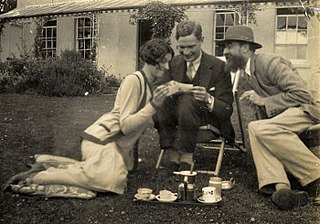A Quote by Wendy Lesser
The solution to the novel's legal problem is a satisfyingly intricate one, and nobody will want his money back on the plot. But the echoes that will remain in your mind after you've finished Reversible Errors will mainly have to do with the novel's other elements.
Related Quotes
I've made the decision to adhere to three general truths when it comes to my novels: There will be a love-story element to the story, the novel will be set in eastern North Carolina, and the characters will be likeable. Then, I make each novel unique through differences in voice, perspective, age and personalities of the characters, and of course, plot.
Introduce your main characters and themes in the first third of your novel. If you are writing a plot-driven genre novel make sure all your major themes/plot elements are introduced in the first third, which you can call the introduction. Develop your themes and characters in your second third, the development. Resolve your themes, mysteries and so on in the final third, the resolution.
The writing of a novel is taking life as it already exists, not to report it but to make an object, toward the end that the finished work might contain this life inside it and offer it to the reader. The essence will not be, of course, the same thing as the raw material; it is not even of the same family of things. The novel is something that never was before and will not be again.
I'm skeptical that the novel will be "reinvented." If you start thinking about a medical textbook or something, then, yes, I think that's ripe for reinvention. You can imagine animations of a beating heart. But I think the novel will thrive in its current form. That doesn't mean that there won't be new narrative inventions as well. But I don't think they'll displace the novel.
When you go through life ... it all seems accidental at the time it is happening. Then when you get on in your 60s or 70s and look back, your life looks like a well-planned novel with a coherent theme ... Incidents that seemed accidental, pure chance, turn out to be major elements in the structuring of this novel. Schopenhauer says, 'Who wrote this novel? You did.'
As I write each new Thorne novel, I'm determined that whatever is happening plot-wise, a new layer of the onion will be peeled away and reveal something about Thorne that is surprising to me as much as anyone else. If I can remain interested in the character, then hopefully the reader will stay interested, too.
Many writers will get a contract by selling chapters and outlines or something like that. I wrote the entire novel, and when it was all finished, I would give it to my agent and say, 'Well, here's a novel; sell it if you can.' And they would do that, and it was good because I never had anyone looking over my shoulder.
The mind moves by instincts, associations and premonitions and not by fixed dates or completed processes. Action and reaction will occur simultaneously: or the cause actually be found after the effect. Errors will be resisted before they have been properly promulgated: notions will be first defined long after they are dead.





































